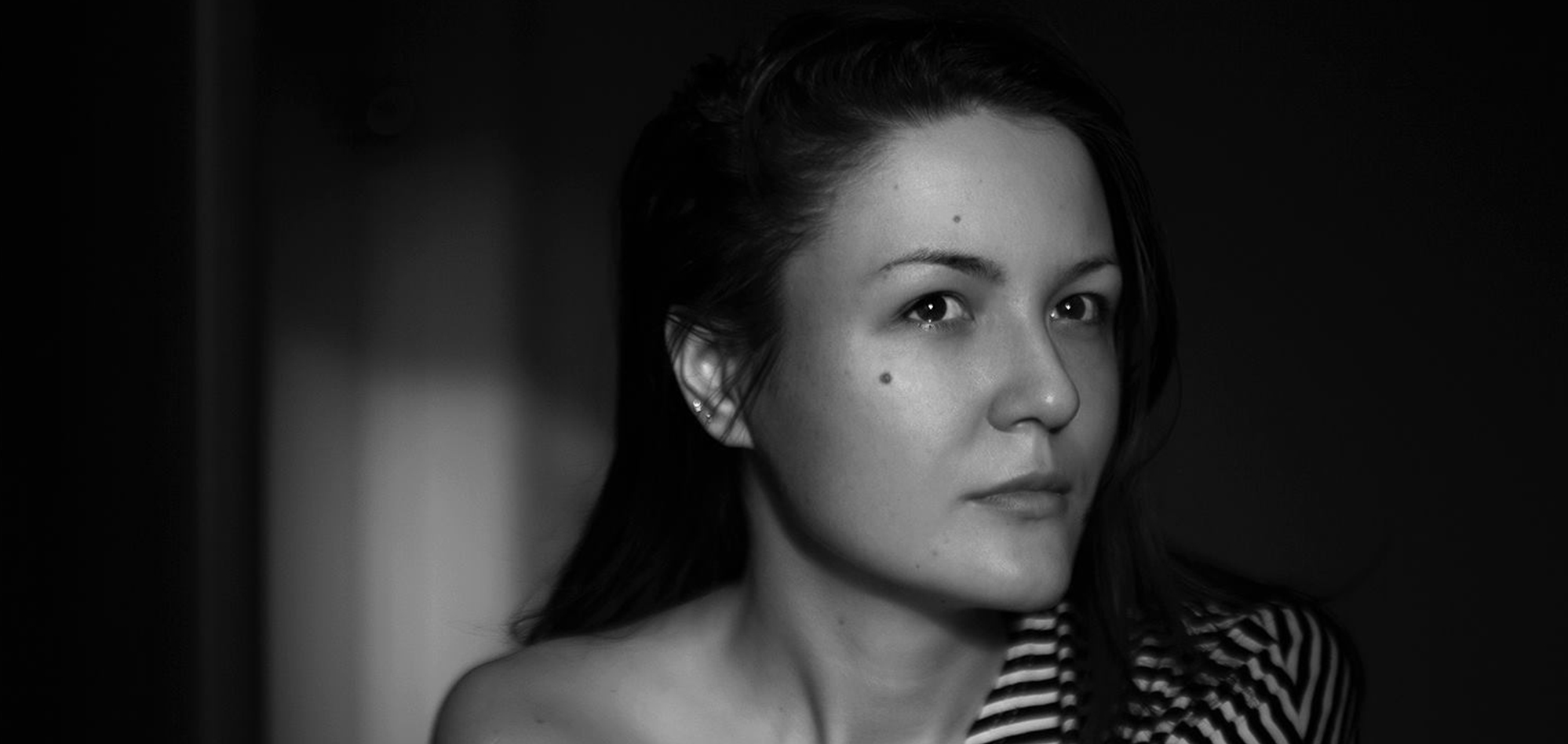Livia Alcalde is an Italian director and screenwriter born in Rome. Her work is focused on social issues and empowered female characters. She has received international awards at the Los Angeles Film Awards, EIFA, International Independent Film Awards, London Independent Film Awards, Mindfield Film Festival L.A., European Film Festival and ASVOFF, among many others.
Within the framework of this year’s 16 DAYS 16 FILMS initiative created by Modern Films and the Kering Foundation, a short film competition that platforms female filmmakers and their films, which explore, emote, and educate on forms of violence against women, Tara Karajica talks to Livia Alcalde about her short film, “Reshma,” as well as her thoughts on the short form, women in film today and what she is up to next.
How did you get into filmmaking and what inspires you to make films?
Livia Alcalde: My parents taught me the passion for cinema, and from a very young age I loved cult films such as Blade Runner, La haine, Alien, American History X, all of Kubrick’s works and so on. However, I could have never imagined that I’d become a director one day, because when I was growing up, in the ’90s, there were almost no examples of mainstream, successful female directors. They existed, but they were mostly snubbed by the industry and the media. Following my passion for photography, I worked for some years as a fashion photographer and I started shooting fashion films. I fell in love with the moving image and the endless opportunities of storytelling. I mixed that with my passion for writing and started writing and directing music videos, documentaries and shorts. I’m half Italian and half Argentine and this duality appears in my work as my two greatest artistic influences are Italian Neorealism – Pasolini, Rossellini, De Sica – and South American Magical Realism – Allende, Iñárritu, Cuarón, García Márquez. I’m inspired by reality, people, conversations, stories in the newspapers. I’m particularly moved by social injustices. I’m also greatly inspired by art in any form, movies, literature, music, painting, sculpture… In the most unpredictable moments, something sparkles this tiny, blurry flame in the back of my head. It can take days, weeks or even months for it to develop and grow, and when it is ready, it moves out of the shadow world and I can start putting it on paper. From there, the real movie project begins.
Can you talk about your short film Reshma?
L.A.: Reshma Qureshi is an Indian girl who survived an acid attack at the age of 17. After overcoming pain, depression and even suicidal thoughts, she became a testimonyy for several campaigns against the selling of acid. She was invited by the FTL Moda production to walk the runway at the New York Fashion Week and the film Reshma is a short, poetic documentary about those days in NYC. It is her story, told in her own voice and words. We, as a crew and human beings, were really moved by Reshma’s courage and grace, so we did our best to deliver her story in the most honest and heartfelt way possible.
How do you see the short form today?
L.A.: Short film is a fundamental form of contemporary narrative in the age of smart phones, the platform on which most people, especially young ones consumes content. It also offers the chance to young directors to experiment and find their own voice before moving to long-form storytelling.
What is your opinion on the situation of women in film today?
L.A.: It is an exciting time to be alive! Things are changing and there are so many talented womxn filmmakers getting recognized. It is so inspiring, especially for the younger generations. We have still a long way to go, considering that in 2019, just 10% of the top movies were directed by womxn. We, womxn filmmakers, have the opportunity to make our movies and the industry more inclusive, not just for us but for all discriminated against and underrepresented groups.
Who is your favorite female filmmaker and what is your favorite film by a female filmmaker?
L..: Can I pick more than one? Ava DuVernay, Cristina Gallego, Céline Sciamma… And, films: Boys Don’t Cry by Kimberly Peirce and Monster by Patty Jenkins for their important social message, Strange Days by Kathrine Bigelow for my sci-fi obsession, and I’ve been truly amazed by Cristina Gallego’s Pájaros de verano, which she co-directed with Ciro Guerra.
What are your next projects?
L.A.: My co-director-producer, Chiara Nardone, and I are finishing the post-production of Leher –The Wave of Empowerment, a feature documentary about acid attacks that we shot in India for the NGO “Make Love Not Scars,” with the same, amazing camera team of Reshma, Emmy Award winner D.o.Ps Greg Harriott and Alejandro Cortes. As screenwriter, I’m working on multiple, international film and series projects. As director, I’m developing my first feature film. All my projects deal with issues of racism, discrimination against women and the LGBTQ community, and other forms of social injustices, as these are the themes that matter the most to me as an artist and a human being.
This interview was conducted within the framework of the 2020 16 DAYS 16 FILMS initiative created by the Kering Foundation and Modern Films.










